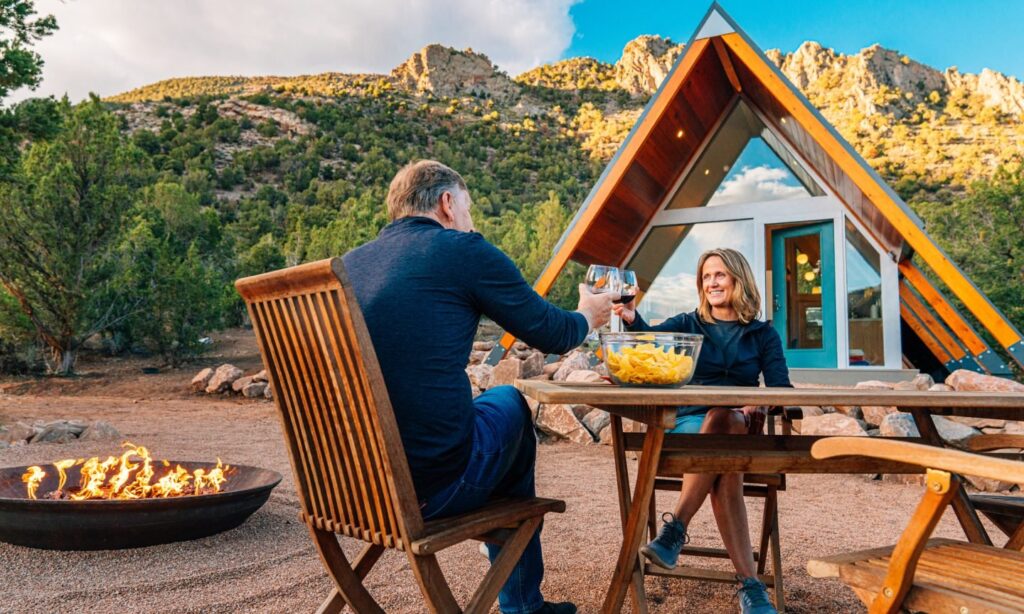 Since its humble beginnings in 2008, Airbnb has become a household name, fundamentally altering the hospitality landscape. Airbnb’s arrival wasn’t just about offering a new place to stay; it was a complete shakeup of the hospitality landscape, forcing hotels to adapt and travelers to reconsider their options. Here’s how Airbnb and hotels changed the game:
Since its humble beginnings in 2008, Airbnb has become a household name, fundamentally altering the hospitality landscape. Airbnb’s arrival wasn’t just about offering a new place to stay; it was a complete shakeup of the hospitality landscape, forcing hotels to adapt and travelers to reconsider their options. Here’s how Airbnb and hotels changed the game:
For Guests
- Variety and Uniqueness: Airbnb opened the door to a world beyond standardized hotel rooms. Apartments, houses, treehouses, and even boats became accommodation options, catering to diverse budgets and a desire for unique experiences.
- Immersion and Local Connection: Airbnb stays often feel more like living like a local. Guests can interact with hosts who offer recommendations and cultural insights, fostering a sense of community.
- Control and Flexibility: Airbnb allows personalization. Travelers can choose properties with specific amenities like kitchens, laundry, or even a pool, giving them more control over their stay.
For the Hospitality Industry
- Innovation and Tech Focus: Airbnb’s user-friendly platform with online booking, reviews, and secure payments set a new standard. Hotels responded by investing in technology to enhance guest convenience, like mobile apps and online booking systems.
- Shifting Customer Expectations: Travelers now expect more than just a bed. Hotels are upping their game by offering personalized experiences, curated activities, and local partnerships to compete with Airbnb’s immersive approach.
- Competition and Collaboration: The rise of Airbnb forced hotels to adapt and re-strategize. The future might see a blend of approaches, with hotels offering unique experiences and vacation rentals adopting hotel-like amenities and professional management.
How Airbnb Challenged Traditional Hotel Structures With Its Peer-To-Peer Platform.
Airbnb’s peer-to-peer platform fundamentally challenged traditional hotel structures in several key ways:
1. Democratization of Accommodation
Hotels operate on a limited inventory of standardized rooms. Airbnb, however, leverages existing housing, creating a vast marketplace with diverse options. This caters to a wider range of budgets and preferences, empowering travelers to find unique spaces that suit their needs.
2. Shift in Power Dynamics
Traditionally, hotels held all the power, dictating prices, amenities, and guest experiences. Airbnb disrupts this by empowering both hosts and guests. Hosts can monetize unused spaces, while guests gain control over their stay, choosing features and interacting directly with locals.
3. Focus on Experience over Service
Hotels prioritize standardized service. Airbnb, on the other hand, fosters a more experiential approach. Guests can connect with hosts, gain local insights, and feel more immersed in the destination. This shift pushes hotels to offer curated activities and local partnerships to compete.
4. Technology as a Disruptor
Airbnb’s user-friendly online platform, with detailed listings, reviews, and secure payments, raised the bar for online hospitality. This forced hotels to embrace technology, investing in online booking systems and mobile apps for a seamless guest experience.
5. Impact on Regulations
The rise of Airbnb highlighted a gap in regulations for short-term rentals. Cities grappled with concerns about housing availability and fair competition with hotels. This led to the creation of new regulations to ensure responsible hosting practices and a level playing field.
Conclusion
Airbnb and hotels have pushed each other to improve, creating a more diverse and dynamic hospitality landscape. Travelers now have a wider range of options, while the industry focuses on innovation and exceeding guest expectations. This shift towards unique experiences and a deeper connection to destinations is likely the future of travel.
A4ARCHITECT OFFICE,
ALONG SOUTHERN BYPASS.
SOUTH HOUSE HOTEL AIRBNB – 0721410684


Leave a Reply